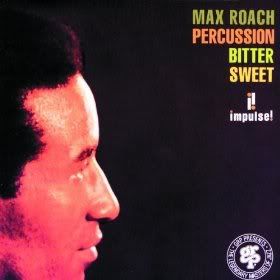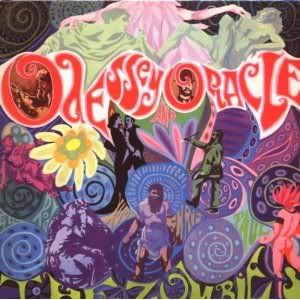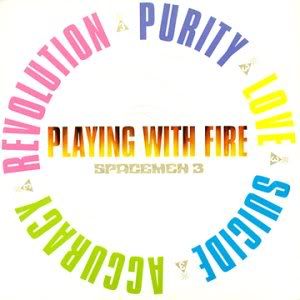
Artist: Max Roach
Album: Percussion Bitter Sweet
Label: Impulse!
Year: 1961
No shit, it's been exactly a year since I first reviewed this album! What are the odds. I skimmed my first review, but didn't read it in detail. I can't promise this review will be anything totally new, but here goes.
Percussion Bitter Sweet does not mark the first jazz album influenced by African roots or that serves as an appetizer for the black power movement (not only culturally, but in the late-60s that exploded in the jazz world with the likes of Archie Shepp and so many others). It's not even Roach's first album to do so, really, as the previous year's We Insist! Max Roach's Freedom Now Suite really lays the groundwork for what this album is about. But if there was ever a sequel that improved upon and built off the original...this is it. Percussion Bitter Sweet is one of the finest jazz albums of all-time, and still does not get its due when compared to other jazz greats.
That really can't be attributed to tone or context, really, either. Black pride had always been a part of the roots of jazz, as far back as Jelly Roll Morton, as recently as Charlie Parker, and was certainly continued with the likes of Miles and Mingus. But I would argue that few albums ever musically reflected, or perhaps more accurately, predicted, the tone and air of dissonance surrounding the era. Whether the fire of Abbey Lincoln's vocals or the aggression of the band (certainly aided in this regard by the presence of Eric Dolphy). The unbelievable melodies that are wrapped within this cacophony of sound make for such a splendid album, it's really always a delight.
I've already talked about this album enough I suppose, coupled with my other review and my admittedly limited knowledge about jazz in any sort of technical or official sense. But I know this album is, quality-wise, on par with the giants like Mingus Ah Um and Kind Of Blue, and Max Roach's legacy in jazz is still monumental, even if he's not a household name (and his death a few years ago seems to have added little to his legacy). Percussion Bitter Sweet is one of the most fiery aggressive and magnificent albums of its time, and certainly does a lot to predict the era that would come next.

